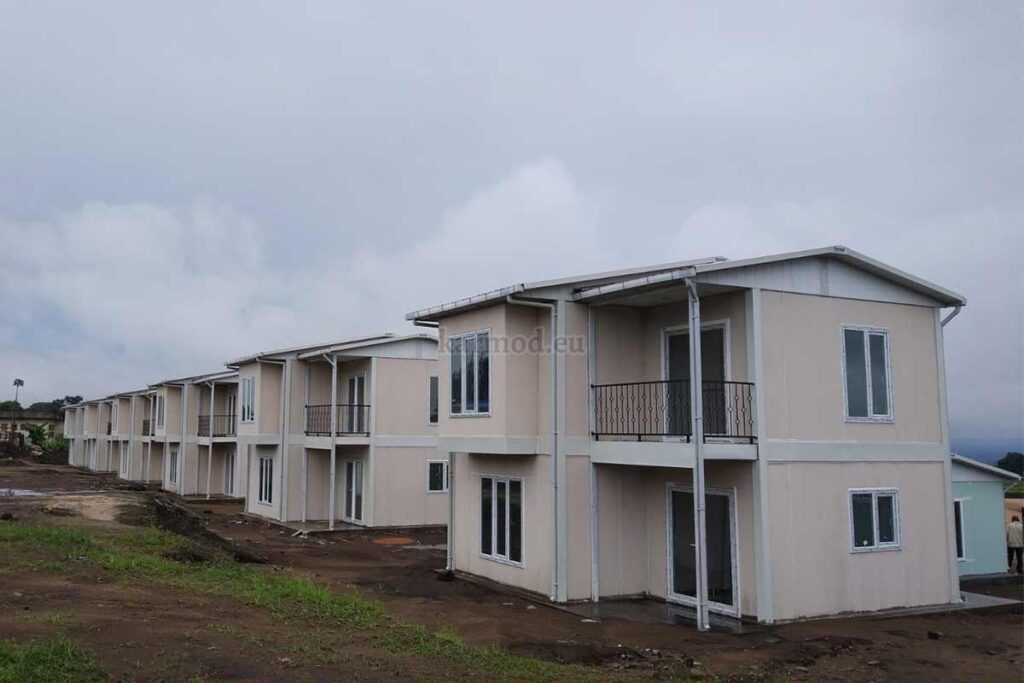
Interviews with Modular Home Experts: Insights and Trends
In recent years, modular homes have garnered significant attention for their impressive efficiency and sustainability. As more people explore alternatives to traditional housing, the scope of modular homes becomes increasingly relevant. To gain a deeper understanding of this evolving industry, we present interviews with modular home experts who offer valuable insights into the world of modular construction. This article aims to illuminate various aspects of the modular home market, design considerations, and future trends.

Understanding the Modular Home Concept
The term ‘modular home’ often sparks curiosity among homebuyers. At its core, a modular home is a pre-fabricated structure designed and built in sections, or modules, within a factory setting. These modules are then transported to the home site and assembled like a life-sized jigsaw puzzle. This innovative approach not only reduces construction time but also minimizes the traditional waste associated with homebuilding.
The Rise of Modular Homes
Experts attribute the rise in modular homes to their blend of affordability, sustainability, and quality. Unlike traditional site-built homes, modular homes can be completed faster and offer better cost control. An increasing number of architects and designers are now dedicated to creating aesthetically pleasing and functional modular homes that cater to diverse tastes.
As [CNBC](https://www.cnbc.com/2024/03/18/modular-housing-a-century-old-sustainable-housing-idea-is-struggling.html) reports, modular housing is evolving, tackling prior limitations through modern technology, benefiting individuals and communities seeking efficient solutions.
Expert Opinions on Design and Customization
One advantage of modular homes is the ability to customize. Erik Thompson, a renowned modular home designer, explains that modular homes offer limitless design possibilities. Homeowners can adjust floor plans, select finishes, and incorporate sustainable materials that align with their lifestyle.
Key Customization Elements
- Flexible Layouts: Modular homes enable homeowners to modify interior layouts without structural constraints.
- Sustainable Materials: Use of eco-friendly materials contributes to lower environmental impact.
- Technology Integration: Modular homes often include smart home technology, enhancing energy efficiency and convenience. For instance, incorporating smart tech can personalize home management.
The Environmental Edge of Modular Homes
Environmental sustainability is at the forefront of the modular home movement. The construction process itself is more environmentally friendly as it results in reduced waste and optimized energy usage. According to Emily Johnson, an environmental engineer, modular homes contribute to lowering carbon footprints due to their energy-efficient design.
Advantages in Modern Living
The advantages of choosing modular homes extend beyond environmental factors. Many appreciate the peace of mind knowing that their home is constructed in a controlled factory environment, leading to consistent quality. Plus, the rapid assembly process on-site minimizes neighborhood disruption, which often plagues traditional builds.
Financial Incentives and Market Trends
From a financial perspective, modular homes offer appealing incentives. Jane White, a real estate market analyst, notes two significant financial benefits of modular homes: cost savings and investment potential. Modular homes tend to have lower upfront costs compared to site-built homes, and their energy efficiency leads to long-term savings on utility bills.
Market trends also favor modular homes as urban areas face land and resource scarcity. With the global housing crisis, gaining insights from experts highlighted strategic pivot points in modular home adoption. More households are recognizing modular homes as viable options for investment due to their ability to retain value and accommodate architectural evolution.
Overcoming Challenges in Modular Housing
Despite the numerous benefits, modular housing does face challenges. The perception that modular homes lack personalization is gradually changing. Emerging architects and skilled builders are committed to overcoming this stereotype by delivering projects that break the mold of prefabrication clichs. Localized building codes and zoning laws can also stand in the way of modular home construction. Advocacy for more flexible regulatory frameworks is currently underway to pave the path for easier adoption of modular homes.
Solutions and Innovations
Innovations in materials and construction techniques continue to drive modular home success. For those interested in smoother placement and setup, reading about land preparation proves beneficial. In future-proofing the housing market, many are relying on cutting-edge technologies to enhance structural resilience.
Looking Toward the Future
The future of modular homes shines brightly. Developers are increasingly willing to experiment with novel designs, including climate-resilient models that can withstand various conditions. Kevin Harris, a futurist specializing in housing trends, predicts that modular housing will become the norm as urbanization, environmental concerns, and technological advancements shape demand.
Adapting to Change
Innovators in the modular home sector are embracing change, emphasizing user-friendly designs and sustainable materials. This transformation continues to captivate urban planners and environmental strategists alike. With an increasing emphasis on cost-effective, eco-friendly construction, the transformation augurs well for those seeking more viable alternatives in housing solutions.

FAQ Section
- What exactly is a modular home?
A modular home is a prefabricated dwelling built in sections within a factory, then assembled on-site. This approach offers speed, cost-effectiveness, and consistent quality. - How customizable are modular homes?
Modular homes are highly customizable, offering flexibility in design, layout, sustainable material use, and technology integration. - Are modular homes a good investment?
Yes, modular homes offer cost savings upfront and on utilities in the long run, making them a sound investment.
This article contains affiliate links. We may earn a commission at no extra cost to you.